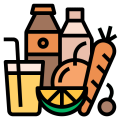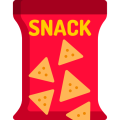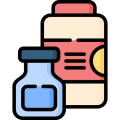Starch & Starch Products Testing

STARCH & STARCH PRODUCTS
A starch product is often the first choice of a food product developer needing thickening, bulk, or body.
Starch products usually have the advantage of lower cost and easier handling and processing, as compared to
hydrocolloids, but starch is not the ideal thickening, gelling, and/or texturizing agent for all
applications.
SOME COMMON STARCH PRODUCTS
CORN FLOUR: Corn flour is the result of grinding entire corn kernels into a fine powder. Therefore, it
contains protein, fiber, starch, and the vitamins and minerals found in whole corn. In addition to
providing more fiber and protein, corn flour contains B vitamins, iron, potassium, magnesium, and several
other nutrients. Some common parameters tested in corn flour are: moisture, total ash, acid insoluble ash,
starch, protein, pH, alcoholic acidity, arsenic, lead, copper, zinc and tin.
CUSTARD POWDER: Conventional custard powder that we purchase in the supermarket is basically a combination
of cornflour, riboflavin (a vitamin), conventional salt, and some amounts of flavor. It has found
widespread use due to the fact that it is easy to use and gives a hundred percent and congruent effect to
any dessert. Some common parameters tested in custard powder are moisture, total ash, acid insoluble ash,
sulphur dioxide, gelling powder, etc.
FLOURS & BLENDS: Flour is a powder made by grinding raw grains, roots, beans, nuts, or seeds. Flours are
used to make many different foods. Cereal flour, particularly wheat flour, is the main ingredient of bread,
which is a staple food for some cultures. Some common parameters tested are moisture, starch content,
protein, ash, acid insoluble, sulphated ash, cold water extract, iron, lead, arsenic, etc.
TESTING SERVICES OFFERED By LABS
Chemical Analysis (moisture, total ash, energy, milk fat, etc.)
Nutritional Analysis & Labelling (energy, protein, carbohydrates, total sugar, etc.)
Fatty acid profile & Trans fatty acids (MUFA, PUFA, etc.)
Vitamins (Vit. A (as retinol), D, E, K, etc.)
Amino Acid Profile
Minerals (sodium, potassium, chloride, calcium, etc.)
Mycotoxins (total aflatoxin, aflatoxin B1, etc.)
Microbiological parameters (total plate count, total coliform count, yeast and mould count, salmonella and shigella, E. coli, etc.)
Heavy metal residues (lead, tin, arsenic, copper, cadmium, etc.)
Naturally Occurring Toxic Substances (Agaric acid, Hydrocyanic acid, Hypercine and Safrole)
Melamine
Additives (benzoic acid and its salts, BHA, hypericine, inositol, lactic acid & its salts, etc.)
Sensory Evaluation
Shelf Life Testing
Molecular Testing
Allergens (celery, mollusc, milk, egg, fish, etc.)
GMO Testing
Test for active Components (Qualitative)
ETO and ECH Testing
MCPDs and GE Testing
Food Application and recipe engineering
Radioactive residues
Steroids and Hormone Testing
Dioxins, PCBs, PAHs & Furans
 Admin Register
Admin Register

 Alcohol
Alcohol  Baby Care
Baby Care  Bakery, Cakes & Dairy
Bakery, Cakes & Dairy  Beauty-&-Hygiene
Beauty-&-Hygiene  Beverages
Beverages  Cleaning & Household
Cleaning & Household  Construction Materials
Construction Materials  Foodgrains, Oil & Masala
Foodgrains, Oil & Masala  Medicine
Medicine  Medicine Related Cosmetics
Medicine Related Cosmetics  Non-Veg
Non-Veg  Pesticides
Pesticides  Snacks & Branded Foods
Snacks & Branded Foods  Supplement
Supplement  Veterinary
Veterinary 